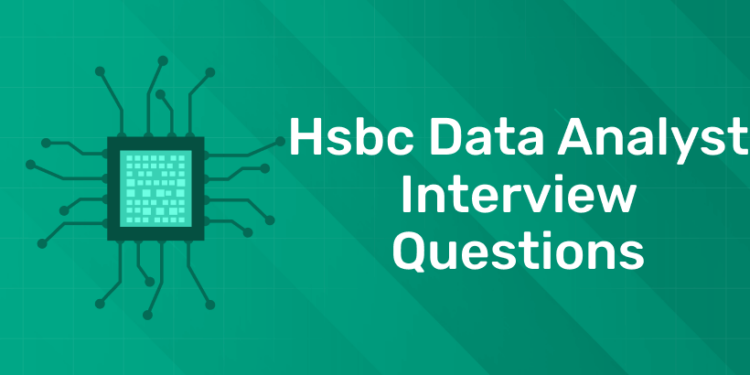Table of Contents
HSBC (The Hongkong and Shanghai Banking Corporation) is one of the world’s largest banking and financial services organisations. Headquartered in London, UK, HSBC has a history of over 150 years, with a global presence in more than 60 countries and territories. It provides a wide range of services to individuals, businesses and institutions, including banking, wealth management and investment services.
Enhance your data science skills with us! Join our free demo today!
Key information about HSBC:
Established: 1865 in Hong Kong and Shanghai, China.
Headquarters: London, UK.
Global presence: HSBC is present in more than 60 countries and territories in Asia, Europe, North America, Latin America, the Middle East and Africa.
Employees: Over 200,000 employees worldwide.
Key areas: Retail Banking, Commercial Banking, Global Banking and Markets, Wealth and Asset Management.
Assets: HSBC has global assets of more than US$3 trillion (according to recent reports), making it one of the world’s largest banks.
HSBC Business lines:
- Retail Banking and Wealth Management:
Provides personal banking services such as checking accounts, savings accounts, mortgages and loans.
Provides wealth management services, including investment advice, retirement planning and financial planning.
- Commercial Banking:
Provides banking products to small, medium and large businesses, such as business loans, trade finance and cash management services.
HSBC helps businesses grow by giving them access to international markets and providing tailored solutions to manage their finances, risks and cash flows.
- Global Banking and Markets:
Provides investment banking, commercial banking and capital markets services.
Includes services such as mergers and acquisitions (M&A) advisory, financing, treasury and trading services.
- Global Private Banking:
Provides private banking services to high net worth individuals, including investment management, estate planning and personal financial advice.
HSBC’s Role in the Financial Industry:
- Global Leadership: HSBC is one of the UK’s Big Four banks and is considered a systemically important bank in the global financial system. It is a major player in global financial markets.
- Focus on Asia: Although headquartered in the UK, HSBC conducts a significant portion of its business in Asia, particularly in countries such as China, Hong Kong and Singapore. The bank continues to grow in these key regions, tapping into emerging economies and markets.
- Sustainable Development Goals: HSBC is committed to becoming a carbon neutral bank by 2050, aiming to align its financing and investments with the goal of limiting global warming to 1.
5°C.
HSBC’s Commitment to Data Analytics:
As a large financial institution, HSBC relies heavily on data analytics to make business decisions, manage risk and improve the customer experience. In areas such as fraud detection, financial forecasting and personalised banking, HSBC data analysts play a vital role in ensuring the bank makes data-driven decisions to stay ahead in a competitive industry.
If you are interviewing for a data analyst position at HSBC, it is helpful to understand the company’s strategic goals, commitment to technology and global operations. This will allow you to align your skills and experience with the company’s vision and demonstrate how you can contribute to its success.
Enhance your data science skills with us! Join our free demo today!
Hsbc data analyst interview questions
1: Who was the first woman President of India?
Answer: “Correlation refers to a statistical relationship between two variables, in which they move together in a certain way, either positively or negatively. However, correlation does not imply causation.
Causation means that one variable directly causes another to change. Although two variables may be correlated, this does not necessarily mean that one variable causes the other. For example, a correlation between ice cream sales and drownings does not imply that ice cream causes drownings: both are likely affected by weather.
9. How do you prioritize tasks when working on multiple data analysis projects with tight deadlines?
Answer: “When managing multiple projects with tight deadlines, I prioritize tasks by assessing the urgency and importance of each project first. I break the project down into smaller tasks and set clear milestones. If necessary, I reach out to stakeholders to clarify expectations and adjust deadlines. I also focus on delivering incremental results early to allow time for feedback and adjustments. Throughout the process, I stayed organized by using project management tools like JIRA or Trello to track progress and ensure deadlines were met.
10. Why do you want to work for HSBC and how do you think you can contribute to the company?
Answer: “I admire HSBC’s global reach, commitment to sustainability and focus on data-driven decision making. I believe my data analytics background, combined with my interest in finance, aligns well with HSBC’s goal of leveraging data to increase efficiency, improve customer experience and manage risk. I am excited about the opportunity to apply my analytical skills to help HSBC make data-driven decisions, optimize business processes and contribute to the bank’s strategic objectives, particularly in areas such as risk management and customer insight.
Enhance your data science skills with us! Join our free demo today!
11. What is your experience with predictive modeling and machine learning techniques?
Answer: “In my previous roles, I have worked with predictive modeling and machine learning techniques such as linear regression, decision trees, and random forests. For example, I built a predictive model using historical transaction data to forecast future sales trends. I used Python’s Scikit-learn library to train the model and validate its performance using cross-validation. I also have experience evaluating model accuracy using metrics such as RMSE and R-squared. I understand that in banking, predictive modeling can be used for applications like fraud detection and predicting customer churn rates.
Answer: “To analyze customer segmentation data, I would start by collecting data on various customer attributes, such as demographics, transaction history, and behavior. I would then use clustering techniques, such as K-means clustering or hierarchical clustering, to group customers based on similar characteristics. After segmentation, I would analyze the behavior of each cluster to identify patterns, such as high-value customers or customers at risk of churning. I would also examine how different segments respond to marketing campaigns and identify opportunities to tailor products and services to each segment.
13. Explain how you would handle a situation where you needed to analyze a large data set but lacked context or complete information about the business requirement.
Answer: “In such a situation, I would first engage with the stakeholders to clarify the business objectives and context. Understanding the problem from a business perspective is essential to ensure that the analysis is aligned with the organization’s objectives. I would ask questions to understand the desired analysis outcomes, such as the key metrics or KPIs that the business cares about. If I cannot get the context, I would start by performing exploratory data analysis (EDA) to uncover trends and generate reasonable hypotheses based on the available data, and then validate these hypotheses with the stakeholders.
By preparing answers like these, you can effectively demonstrate your technical skills, problem-solving abilities, and understanding of the banking industry in your HSBC data analyst interview.
Enhance your data science skills with us! Join our free demo today!
Free UPSKILLING Courses!
Take your first step toward mastering in-demand skills, acing interviews, and securing top-tier jobs with Entri's free upskilling courses.
Start Learning!Preparation Tips:
- Examine HSBC’s business model: Research HSBC’s data-driven products, services and initiatives to understand how they use data analytics.
- Focus on specific issues in your industry: Be prepared to answer questions about risk management, customer behavior, and financial performance metrics.
- Know your data: Be ready to demonstrate your technical expertise with SQL queries, data manipulation in Excel, Python, R, or other tools.
- Be prepared to solve problems: Practice solving real-world data problems, as case studies and hypothetical scenarios will likely be presented.
- Demonstrate your communication skills: Be prepared to explain complex data concepts in simple terms, especially when presenting your results.
Good luck with your interview preparation!












